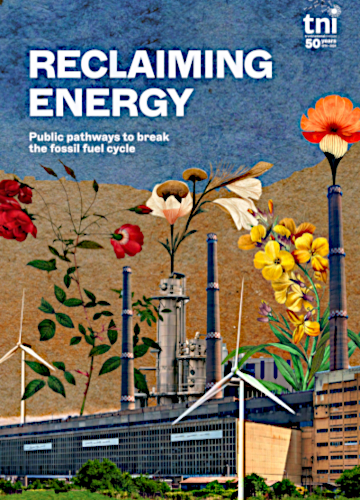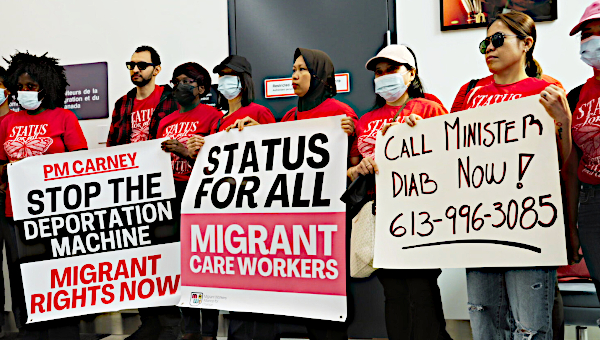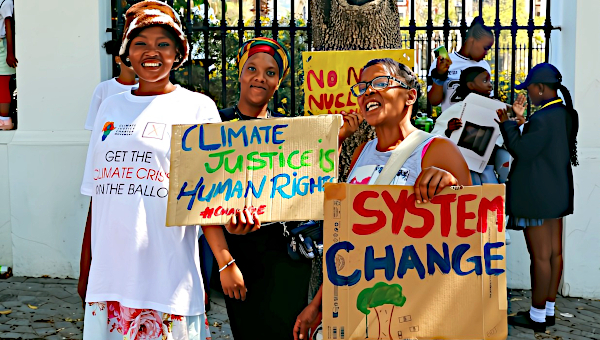Unions in Tunisia Win a Victory for Public Energy and Worker Rights
Over the past few days, there have been a series of power outages across Tunisia. During Tunisia’s sweltering summer months, electricity demand often surges to record-breaking levels as air conditioning systems run at full capacity everywhere from homes and workplaces to grocery stores and hospitals – for those who can afford it.
The state-owned Tunisian Electricity and Gas Company (STEG) is currently implementing electrical load-shedding, or “délestage” – a deliberate power-cutting measure. In a statement, STEG explained:
“This outage is not due to regional outages but rather a proactive measure taken nationwide to avoid the risk of a total collapse of the electricity grid (blackout), due to an unprecedented peak in consumption that affected most of the country’s governorates. STEG confirms that its technical teams have already begun the process of gradually restoring power in various regions and are working at full capacity to ensure grid stability and restore normal electricity distribution as soon as possible.”
The wave of load shedding is expected to continue in the coming period of increasing temperatures and an electricity consumption that exceeds year-round averages. This trend toward deliberate power cuts is usually justified by the need to maintain the stability of the electrical system and avoid total and complete blackouts.
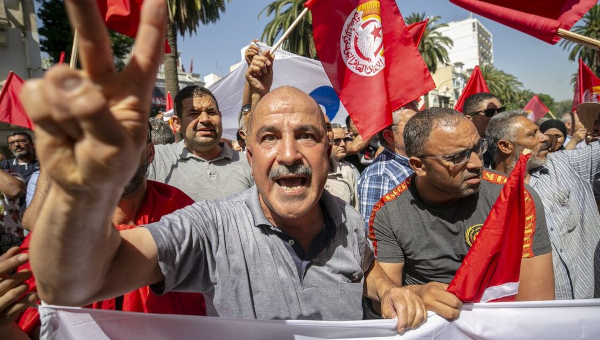
The Bigger Story
Workers at the General Federation of Electricity and Gas (FGEG in French), the representative union body for all STEG workers, say this justification falls short and is strategically partial. Although plausible from a technical perspective, it misses the forest for the trees.
In fact, it is government measures impeding the public company to make investments in electricity generation. For example, of the 380 megawatts of renewable energies approved by three ministerial councils since 2016, none have been licensed to STEG. The World Bank has been an important player. The FGEG union reviewed a memorandum of understanding (MOU) between the World Bank and STEG for a $150-million USD loan in 2019, which included an acknowledgment that STEG’s investments should be directed toward transmission infrastructure in order to facilitate feeding of renewable energies generated by the private sector to the electric grid.
In other words, an exclusively (or over-emphasized) technical explanation, though partially true, hides the bigger picture of issues that have long afflicted the public company. The FGEG union, and the Tunisian national centre to which it is affiliated, the General Labor Union (UGTT), have been sounding the alarm for years, pointing to the deeper general issues facing the STEG public company.
Mobilizations, statements, letters, and other union actions, however, have all been ignored by the government. As a result, in June 2025, FGEG and UGTT workers called for a nationwide strike against energy policies that have favored foreign investors over workers’ rights and public services. The nationwide strike was intended to start on July 17, but the union’s credible threat proved effective.
Strike Threat Wins and Negotiations Begin
The combination of clear union demands, sustained union pressure, and a strike announcement were successful in leading to a negotiation session between the unions (UGTT and FGEG), the government and key ministries, and STEG.
At the negotiations, the union critiqued government measures and legislation that continue to threaten STEG’s economic sustainability and its ability to guarantee the right to (public) electricity, including the following measures:
- Reducing the role of STEG to become a mere intermediary between Independent Power Producers (IPPs) and consumers. The government has been limiting STEG’s investments to power transmission and distribution while allowing private investors to operate in generation. This raises questions about the future of the public sector’s role (or lack thereof) in a vital and strategic sector.
- Handing direct benefits and multiple privileges to foreign direct investments, including the extension of contracts by 10 years. This would cost STEG millions of dollars in additional expenses (as confirmed in a July 2025 press release by the General Federation of Electricity and Gas), essentially diverting funds away from STEG’s public mandate to guarantee a quality public power to the people of Tunisia.
- Denying STEG’s provision of renewable energies since 2016 on flimsy pretexts. Worse still, this decision is an echo of the dictates of international financial institutions – principally the World Bank – aimed at pushing private and foreign investments in the electricity sector.
- Failing to provide effective alternatives and outsourcing sovereign decision-making. Despite the difficult financial situation that damages and erodes STEG year after year, real and effective solutions (including unconventional) are seemingly absent from the minds of government decision-makers.
- Limiting the role of STEG to a mere implementation tool that does not participate in the formulation and legislation of decisions reflects a deeper crisis in the politics of the Tunisian energy sector – To make matters worse, this role has been assigned to (or usurped by) external think tanks that continue to promote neoliberal policies, and rich-country development banks such as the German Agency for Technical Cooperation (GIZ).
At the negotiation, UGTT presented its positions. They presented options for how to overcome the electricity crisis and offered alternative energy policies that respond to the aspirations of the Tunisian people for rights and dignity.
The FGEG and UGTT workers’ clarity at the negotiations proved fruitful. On July 14, an agreement was successfully reached, resulting in significant social and worker gains. The General Federation, FGEG, successfully broke the wall erected by the Ministry of Industry, Energy, and Mines against all attempts at negotiation and decision-making about the future of Tunisia’s energy transition.
The strike announcement (via telegram) and the ensuing negotiation session allowed the unions to demonstrate their political coherence and viable alternatives for a truly just energy transition that breaks with past neoliberal policies and practices. This negotiated agreement also included a number of social benefits:
- Completing the disbursement of the economy grant (see below) for the year 2020, which was punitively denied to STEG workers. The grants will be disbursed this year. More on the importance of this in the following section.
- Redistributing social benefits within the allocated budget in order to expand the base of its beneficiaries and all workers of all wages. This would consolidate social gains and limit the deterioration of their purchasing power.
- Opening negotiations on the revision of some chapters of the special statute for employees of the Tunisian Electricity and Gas Company, which includes issues of concern to many categories of workers. This is in addition to reviewing the basis for calculating some bonuses in order to update them and respond to the requirements of current and future stages.
“Economy Grant”: A Trophy in the Struggle Against Privatisation
The economic grant, a type of “worker bonus” to reward overall performance of several technical indicators is proportional to the evolution of electricity production from one year to the next. It may seem like an innocuous detail, but the grant was leveraged against workers in their struggle against privatisation.
In 2020, electricity production dropped due to the pandemic, and workers did not receive a grant. In 2021, FGEG and STEG protested this, arguing that the negative indicators were beyond the company’s control. STEG’s board of directors agreed, but the Ministry of Industry, Energy, and Mines conditioned its approval on FGEG stopping its struggle against privatization. At the time, FGEG was protesting by refusing to connect private renewable energy production plants to the electricity grid. When FGEG refused, workers were denied the grant as a form of punishment. Following negotiations, the Minister of Social Affairs approved the grant, in effect “embarrassing” the Ministry of Industry, Mines, and Energy by overturning their decision and favoring the union.
Achieving government grant approval is about much more than the grant itself. This important victory for workers demonstrates the power of worker struggles; the grant itself has become a contested trophy in the larger recognition of a justified struggle.
Following the negotiation victory and after a great deal of hardship experienced by STEG and the Tunisian people, the union’s efforts will now focus on two main issues:
- Implementation: The union will apply pressure to ensure the July 14, 2025, agreement is properly implemented, especially with regard to social and professional demands. A proper implementation will ease worker hardships and improve their wages in order to overcome the effects of inflation and the disruption of social negotiations on wage increases.
- Building genuine and sovereign alternatives: The union is committed to addressing the root causes that led to the energy crisis in the first place. Only a truly inclusive project for all progressive forces will be able to avoid repeating (or performing cosmetic reforms to) the government failures in the power sector and the energy transition. The past two summers of 2024 and 2025 are proof of policy failures turned into structural failures.
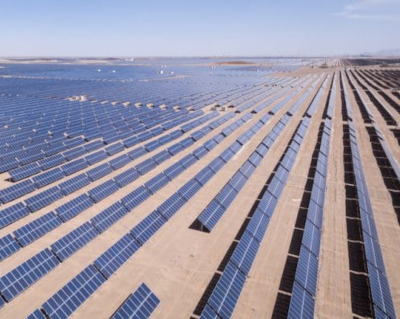
Tunisia is currently hostage to the blackmail of the owners of incomplete energy projects (see below). The country has created an absolute reliance on the foreign investment in electricity generation projects that have yet to be completed. The owners of these projects blackmail the state in order to enjoy additional incentives and privileges and increase their profit margins in exchange for fulfilling their basic obligations. For example:
- None of the projects awarded in 2019 have been implemented on the ground.
- Multinational companies such as Scatec (Norway) and Engie-Nareva (France-Morocco) have abandoned projects with a combined capacity of 300 megawatts.
- Four wind-power projects awarded to French, Dutch, and German companies with a total capacity of 120 megawatts have not been completed since 2021, and their future fate is unknown.
The current energy policy has failed to meet the country’s energy needs. The alternatives are clear. The government should strengthen the public company, which for the past 60 years has proven its merit in electrifying the country and responding to the needs of Tunisian people.
The government should also open the door to new forms of collective development of renewable energies, especially in the local and rural regions. This would be an opportunity not only to achieve a just energy transition but also to encourage just development and enable marginalized groups (e.g., the unemployed) to have viable and economically sustainable projects that provide added value.
The government could and should have done this decades ago. The neoliberal energy policies have come at a great cost to the Tunisian people and workers. For this reason, the union movement declares: there is no alternative but to fight for public electricity; we cannot waste another minute. •
This article first published on the Trade Unions for Energy Democracy website.


